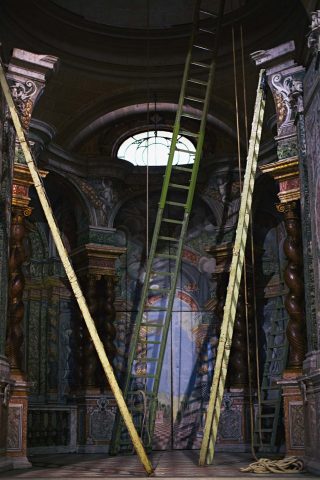When he composed his last opera in 1642, Monteverdi had more than three decades of experience in the genre he had helped found. Since his Orfeo, he had continued to develop the relationship between text and music, working to perfect the dramatic and psychological expressiveness of the score. The libretto that Giovanni Francesco Busenello drew from the Latin historian Tacitus opened up new fields of exploration for him. Both firm and supple in composition, the work is shimmering in its diversity: alternating the sublime and the comic, the nights of Eros and those of Thanatos, its cast ranges from the ill-awake sentry or the cynical old nurse to deities such as Minerva, Mercury or Love himself, via the flower of Roman high society: Nero, his wife Octavia, whom he plans to repudiate in favour of the beautiful Poppea, Otto, her lover in title, and Drusilla, who intends to take advantage of the situation to win him back. Along the way, the philosopher Seneca is forced to commit suicide by the tyrant, who does not appreciate the fact that his old tutor opposes his wishes... Ending with an extraordinary duet between Nero and his triumphant mistress, L'Incoronazione di Poppea is a work of vertiginous amoralism, in which the power of the passions and of power is displayed without mask. Desire and violence are given free rein, as if nothing could resist music and love, as long as they last..
Types
- Music
- Music
- Lyric art
- Opera

